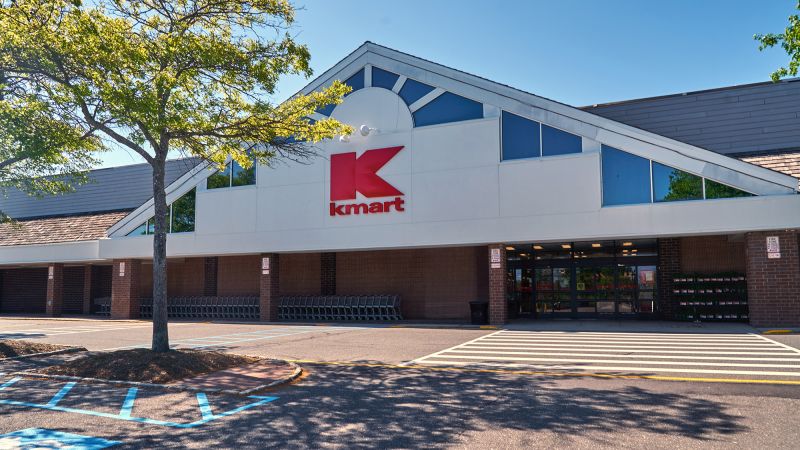Kmart, once one of America’s leading discount retailers, is closing its last full-size store in the mainland United States.
The store, in Bridgehampton, New York, on Long Island, is due to close October 20, according to an employee who answered the phone at the store Monday morning who did not want to give her name. The manager of the store was not available, and the corporate owner Transformco, the company that bought the remains of Sears and Kmart out of the bankruptcy of Sears Holdings in 2019, did not return an email requesting comment.
The chain still has a small convenience store version of itself in Miami, but not the full line of offerings that Kmart was once known for. That location does have some larger ticket goods, though, such as appliances. It also has stores in Guam and the US Virgin Islands, where it does not face competition from more successful big box stores.
Still, the Long Island store closing will close one more chapter in the disastrous 2005 merger of Sears and Kmart, one of numerous iconic retailers killed after purchases by hedge funds and private equity firms. The $11 billion merger was engineered by hedge fund operator Eddie Lampert.
The stores were also doomed by competition with more successful big box competitors such as Walmart and Target, which offered shoppers groceries as well as clothing, household goods and tools sold at Kmart and Sears, along with the growth of online shopping.
At the time of the 2005 merger Kmart had about 1,400 stores and Sears nearly 900 full-line US stores. Lampert appeared more focused on selling off real estate the two companies had along with other assets such as the Craftsman brand of tools previously sold only at Sears, rather than in investing in either chain, leading to a bankruptcy filing in 2018.
When the retailer emerged from bankruptcy it still had 231 Sears and 191 Kmart stores, but those were also almost all doomed. Today only a handful of Sears stores remain.
Kmart started in the late 19th century when founder Sebastian Spering Kresge opened a five-and-dime store in downtown Detroit bearing his name. The Kmart brand didn’t come about until 1962.
The chain grew rapidly for several decades, claiming the discount segment of the market that big box stores now dominate.
Kmart became known for its 15-minute-long “blue light specials”: A store would flash a blue light and announce “attention Kmart shoppers” over the public address system, and customers would rush to buy the discounted goods. The promotions started in 1965 but were discontinued in 1991, although Kmart has tried to bring them back several times.
Correction: An earlier version of this story incorrectly stated the operational status of Sears Hometown outlet stores. All of those locations closed last year.
Read the full article here




